Did you know that alongside numerous unique Slavic written sources, the funds of the Russian State Library store some 1,000 ancient Bulgarian manuscripts? Here is chief paleographer, Prof. Marina Krutova from the “Manuscripts” department with more about them:
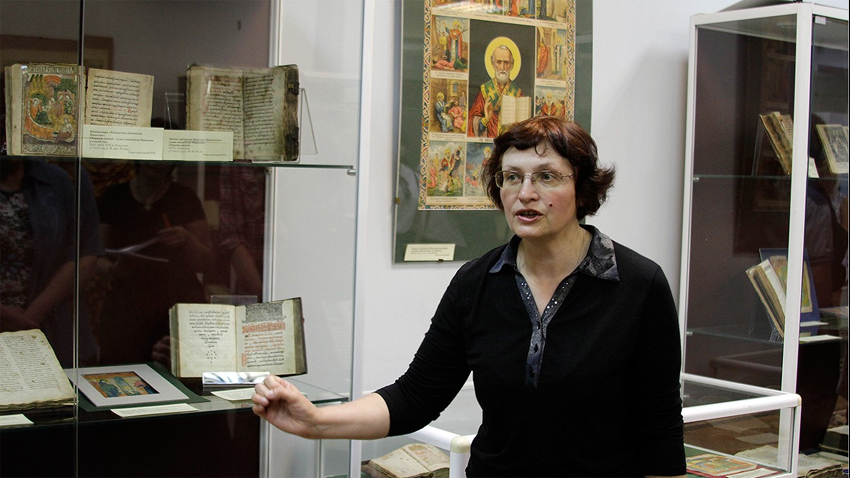
“One of the oldest manuscripts of Bulgarian origin is the Slepchanski Apostle, written on parchment and dated to the end of the 12th century. All of its pages are palimpsest – i.e. written over erased Greek text, a collection of the lives of saints. The Apostle was discovered by a famous manuscript collector, Viktor Grigorovich at the St. John the Baptist Slepchanski monastery (in the village of Slepche) in 1844.
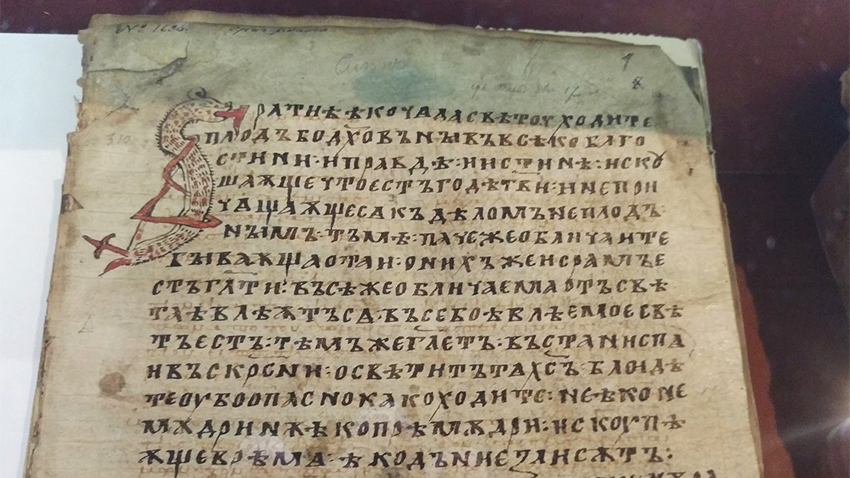
Grigorovich’s collection also includes the Hilendar Parimeinik, found in Hilendar monastery on Mount Athos. Another interesting item is a psalm-book of fortune telling from the second half of the 13th century used to divine the future. This is an uncanonical use of texts typical of Bulgaria, but also of Russia. Viktor Grigorovich acquired this manuscript, again in 1844, in Athos.”
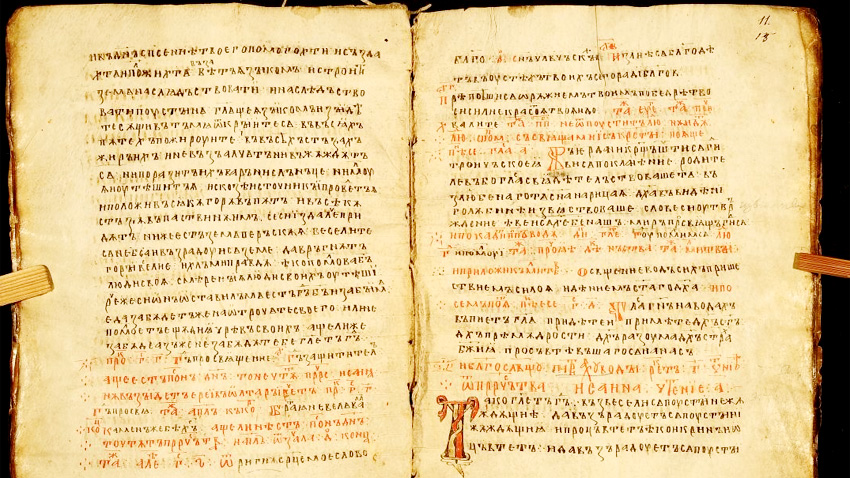
The Russian State Library keeps a number of other remarkable manuscripts, though not as ancient – from the 15th century, for example, Prof. Krutova says. These are manuscripts connected with the name of the Metropolitans of Kiev and all Russia Grigorii Camblak, a Bulgarian writer from the Turnovo literary school, a cleric of Bulgaria, Moldova, Serbia and Russia.
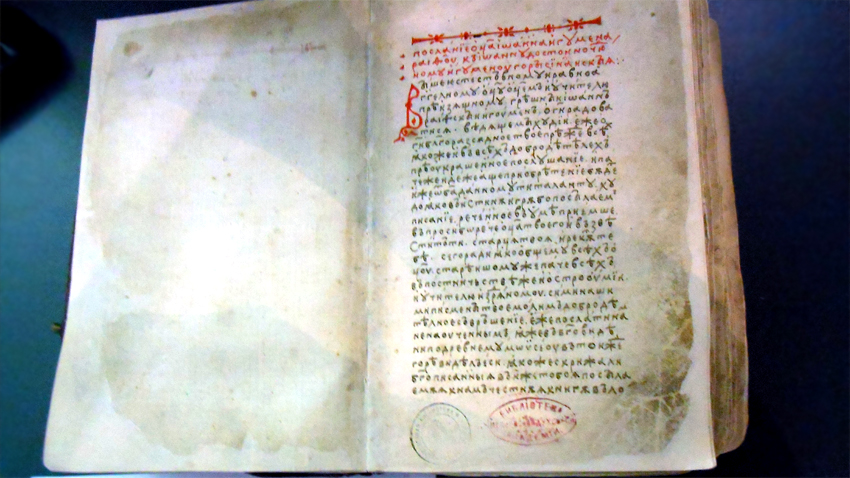 “Talking of Bulgarian manuscripts, there is an enormous literary legacy that should not be omitted – that of the renowned disciple of the Sts. Cyril and Methodius – Kliment of Ohrid,” Prof. Krutova says and adds that many works of his are stocked at the “Manuscripts” department of the library in Moscow.
“Talking of Bulgarian manuscripts, there is an enormous literary legacy that should not be omitted – that of the renowned disciple of the Sts. Cyril and Methodius – Kliment of Ohrid,” Prof. Krutova says and adds that many works of his are stocked at the “Manuscripts” department of the library in Moscow.
“It should be noted that as time went by the name of this remarkable author gradually fell into oblivion. By the 19th century he was all but forgotten and his momentous works were being attributed to other authors. For example, his “Eulogy for the resurrection of Lazarus of the Fourth” was attributed to St. John Chrysostom. But in the 19th century, after long years of oblivion, renowned Russian archeographer and bibliographer Vukol Undolski found the name of bishop Kliment in an ancient catalogue of Bulgarian bishops. And it was thanks to the work of Undolski that researchers started looking into the works by Kliment of Ohrid.”
Bulgarian manuscripts have been studied by a number of Russian collectors of ancient manuscripts – Viktor Grigorovich, Petar Sevastyanov, Count Nikolay Rumyantsev etc. Viktor Grigorovich is one of the first Russian Slavonic experts sent by Russian universities to do research work in the Slavic lands. In the course of three years (1844-1847) Grigorovich traversed these lands, tracked down and collected ancient written material which was then studied.
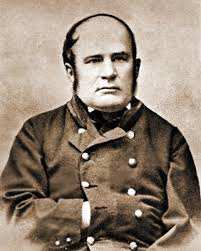 “Grigorovich dedicated his entire life to collecting books. And the most interesting of them he found during his travels. He collected books in Russia, in the Balkans, in Dubrovnik, in Leipzig… Though his travels were underfunded, he did his job brilliantly. Some of the manuscripts he bought, others he received in exchange for other manuscripts – usually newer ones or printed as books – which he carried with him expressly for the purpose. He was given many of the manuscripts by monks and then copied them himself. We have here copies Viktor Grigorovich made of Bulgarian manuscripts. When he saw manuscripts neglected and falling to pieces in attics or basements he would take them and preserve them for the generations. Viktor Grigorovich tracked down over 200 manuscripts, some of them – Bulgarian.”
“Grigorovich dedicated his entire life to collecting books. And the most interesting of them he found during his travels. He collected books in Russia, in the Balkans, in Dubrovnik, in Leipzig… Though his travels were underfunded, he did his job brilliantly. Some of the manuscripts he bought, others he received in exchange for other manuscripts – usually newer ones or printed as books – which he carried with him expressly for the purpose. He was given many of the manuscripts by monks and then copied them himself. We have here copies Viktor Grigorovich made of Bulgarian manuscripts. When he saw manuscripts neglected and falling to pieces in attics or basements he would take them and preserve them for the generations. Viktor Grigorovich tracked down over 200 manuscripts, some of them – Bulgarian.”
English version: Milena Daynova
On November 10, 1989, a plenum of the Central Committee of the Bulgarian Communist Party ousted its General Secretary and Chairman of the State Council, Todor Zhivkov. This marked the symbolic beginning of the transition from a one-party system to..
Archaeologists have explored a necropolis in the Kavatsi area near Sozopol. The perimeter in which it is located is part of the history of Apollonia Pontica and is dated to the 4th century BC. "This is a site with interesting burials in which a nuance..
On November 10, 1989, at a plenum of the Central Committee of the Bulgarian Communist Party, Todor Zhivkov was removed from the position of General Secretary - the highest position in the party and the state. What happened at the..
105 years ago, on November 27, 1919, a treaty was signed in the Parisian suburb of Neuilly-sur-Seine, officially ending Bulgaria's..

+359 2 9336 661
